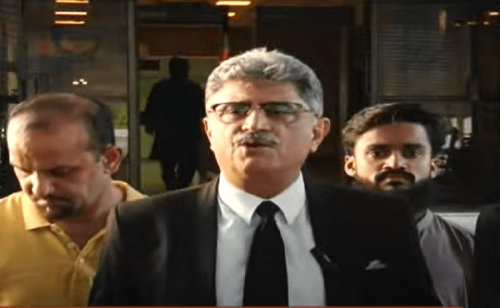ISLAMABAD: Attorney General for Pakistan Mansoor Usman Awan told the Supreme Court on Wednesday that the top judiciary could make its own regulations regarding disclosure of information.
“It is the only solution,” replied the top law officer when Chief Justice of Pakistan (CJP) Qazi Faez Isa asked if a full court comprising all judges of the Supreme Court could make their own regulations for the provision of such information.
The suggestion came during the hearing of a unique case, in which a private citizen sought complete information about the number of staff employed at the top court.
While reserving ruling on the petition, the apex court made it clear that for the sake of transparency, the court was willing to volunteer the information to the petitioner, but it needed to examine first the ramifications, if any, of doing so.
CJP-led bench reserves ruling on petition seeking information about number of employees
But before closing the case, a three-judge SC bench headed by CJP Faez Isa directed AGP Awan and petitioner Mukhtar Ahmed Ali to furnish their written submissions to fortify their respective arguments, which should also explain procedures being practiced around the world.
“We are willing to provide the required information under Article 19A of the Constitution (right to information) and can give relief to the petitioner by ourselves but cannot be compelled under the direction of the Pakistan Information Commission (PIC) since it may lead to collapsing of the entire office structure of the top court,” observed the CJP.
To a court query, petitioner Mukhtar Ali, who belongs to the development sector, said he required the information as a concerned citizen and for the purpose of transparency in the working of the top court.
The petitioner had submitted the request to the SC registrar on April 10, 2019 under the Right of Access to Information Act 2017 regarding the total strength of the staff employed at the top court, vacant posts, contractual or daily wage workers, fresh positions created after Jan 1, 2017, female employees and special and transgender persons, besides the approved rules on recruitment policy.
The information was not provided to the petitioner.
Consequently, Mr Ali approached the PIC Islamabad which passed an order on July 12, 2021, asking the registrar to share the information and notify a public information officer as per Section 9 of the act since the information sought did not impinge upon the functioning of the judiciary.
The registrar office filed a writ petition in the Islamabad High Court on the grounds that the information commission had wrongly assumed that the Supreme Court came under the definition of a public body under the act.
The high court rejected the plea, forcing the petitioner to approach the Supreme Court, contending that he had been deprived of his right to a fair trial.
During the hearing, AGP Awan explained that Article 19A requires provision of information for the purpose that comes under public importance but not for the private use, adding that the PIC cannot order the SC registrar to provide any information regarding the court.
Justice Athar Minallah said a lot of information was available on the apex court’s website, but certain information like employees appointed on the quota of people with disability could not be disclosed.
He said the petitioner should have challenged the vires of the act since it also excluded the armed forces and, therefore, their information could not be sought. He suggested to the petitioner that instead of adopting the route of challenging non-implementation of PIC’s directives, he should be asking for the required information which could be provided on a voluntary basis to secure the cherish goal of the independence of the judiciary.
The CJP observed that the court would not like to share information if, suppose, the court staff included two individuals from the transgender community. Besides, he said, information about the families of the judges could also not be shared, since these were private matters.
The AGP argued that the Constitution takes care of the private information about judges, but the absence of a law will not deprive any citizen of seeking information.
The CJP observed that the registrar office could not be separated from the Supreme Court since the office also performs quasi-judicial functions like decisions regarding accepting or rejecting a petition. “If we surrender this authority, it will have many repercussions,” Justice Isa observed.
Published in Dawn, September 28th, 2023














































Dear visitor, the comments section is undergoing an overhaul and will return soon.